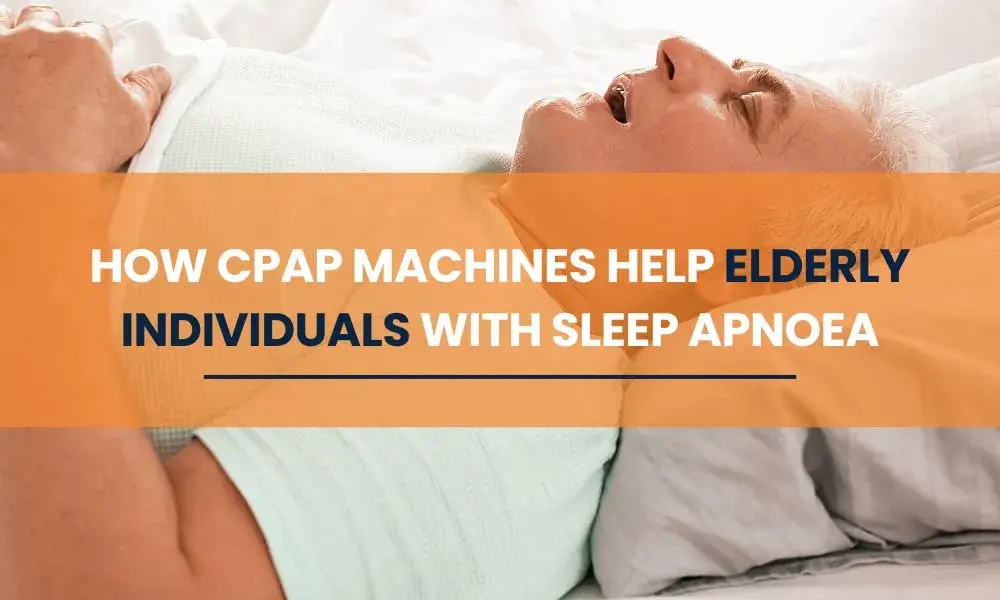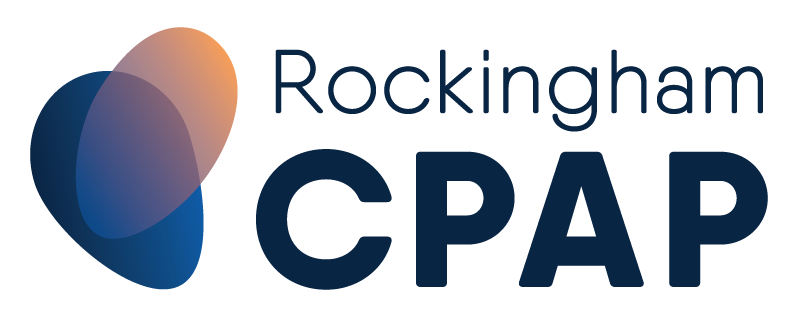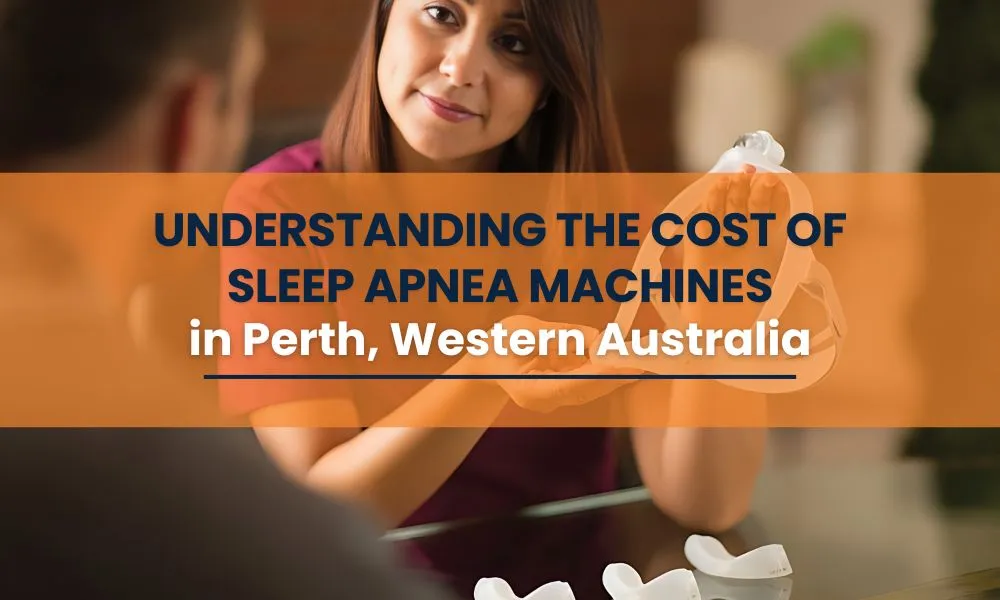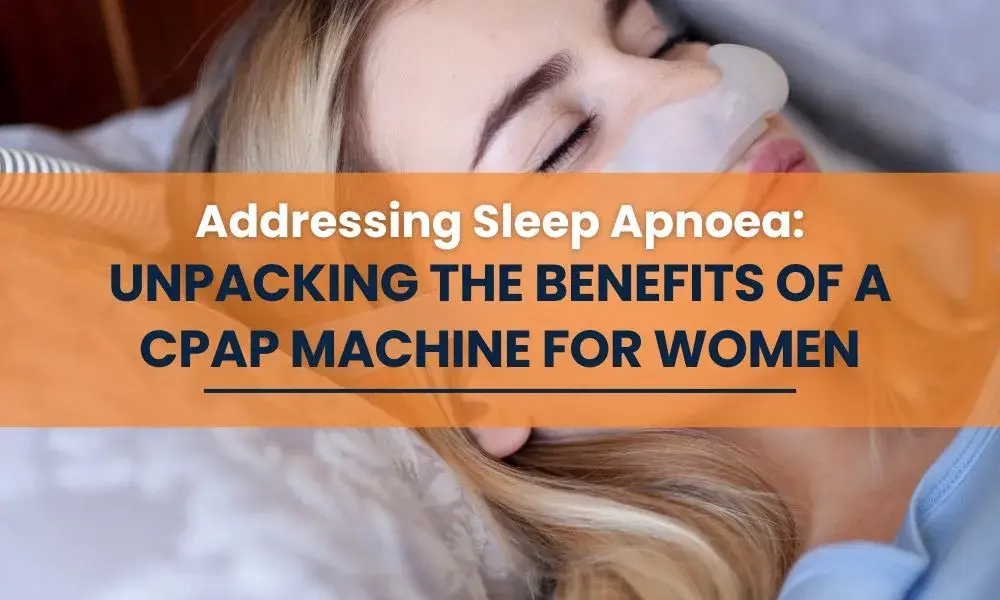
Sleep apnoea is a common sleep disorder that affects many older people. It can have serious health implications if left untreated. However, one effective treatment for elderly sleep apnoea is the use of a CPAP machine. In this article, we will explore how CPAP machines help elderly individuals with sleep apnoea, the benefits of using a CPAP machine, and real-life success stories of elderly individuals who have found relief with this treatment.
Understanding Elderly Sleep Apnoea and Its Risks
Elderly sleep apnoea is characterised by repeated pauses in breathing during sleep, which can severely disrupt the sleep cycle and lead to excessive daytime sleepiness.
In the elderly, this condition is not merely an inconvenience but poses significant health risks. These individuals are at a heightened risk of developing cardiovascular diseases, including hypertension and arrhythmias. The sporadic oxygen levels caused by apnoea episodes can strain the heart and vascular system. Additionally, the fragmented sleep patterns can precipitate or exacerbate cognitive decline and may increase the risk of accidents due to daytime drowsiness.
The elderly population, already vulnerable due to age-related physiological changes, faces a compounded risk when sleep apnoea remains untreated. Understanding these risks underscores the importance of early diagnosis and intervention, highlighting the critical role of treatments like CPAP therapy in mitigating these adverse health outcomes.
The Mechanics of CPAP Machines
At the heart of CPAP therapy lies a device ingeniously designed to maintain open airways during sleep. The CPAP machine functions by propelling a steady airstream through a hose connected to a mask, which snugly fits over the user’s nose, or in some cases, both the nose and mouth. This consistent airflow exerts a gentle pressure, enough to prevent the collapse of the airway, which is the primary issue in sleep apnoea.
Tailoring the device to an individual’s specific needs is straightforward, thanks to adjustable settings that ensure the pressure delivered is both effective and comfortable. Diverse mask styles and sizes are available to cater to different facial structures, enhancing the adaptability of CPAP therapy for elderly users. With technological advancements, modern CPAP machines are equipped with features such as humidifiers to mitigate side effects like dryness, making the experience more agreeable for the user.
At Rockingham CPAP, we work with our patients to tailor a CPAP solution that will fit within their lifestyle. This bespoke approach not only maximises comfort but also ensures the therapy’s efficacy, addressing the unique challenges posed by sleep apnoea in the elderly.
Benefits of Using a CPAP Machine for Elderly
For the elderly grappling with the nightly disturbances of sleep apnoea, the advent of CPAP therapy heralds’ numerous potential improvements. The most important is the enhancement of sleep quality. The stabilisation of breathing patterns during the night reduces the occurrence of abrupt awakenings, facilitating a deeper, more restorative sleep. This improvement in sleep quality naturally leads to heightened energy levels throughout the day, a precious commodity for older individuals who often contend with fatigue.
Using a CPAP machine may also improve cognitive functions within the elderly. By minimising the frequent interruptions in sleep, CPAP therapy helps preserve cognitive faculties, thereby safeguarding against the accelerated cognitive decline frequently associated with disturbed sleep patterns in the elderly.
The consistent use of a CPAP machine can mitigate the risk of developing or exacerbating cardiovascular conditions. The alleviation of strain on the heart and vascular system, by maintaining steady oxygen levels, represents a significant step towards maintaining cardiac health.
Incorporating CPAP therapy into the nightly routine of elderly individuals with sleep apnoea, offers not just a shield against the immediate discomforts of sleep apnoea but also a broader support, protecting against a spectrum of related health issues. This, in turn, contributes to a more vibrant, engaged, and healthier life in the golden years.
Overcoming Challenges and Making Adjustments for Elderly Users
Adapting to CPAP therapy can present certain hurdles for the elderly, ranging from initial discomfort with the mask to acclimatising to the sensation of continuous airflow. These challenges, however, can be surmounted with appropriate guidance and patience.
It’s essential to facilitate a smooth transition by offering personalised support tailored to individual concerns. It’s not a one size fits all approach. At Rockingham CPAP, we’ve partnered with leading sleep specialists to ensure we have a variety of solutions available, allowing us to find the right solution for you.
Elderly people can also be apprehensive about using a new piece of equipment. By educating users on the importance of CPAP therapy and demonstrating how to use the equipment correctly, we can alleviate apprehension. Additionally, addressing common concerns such as noise from the machine or skin irritation under the mask can make a substantial difference in sustained use by the elderly.
By developing a relationship with our elderly patients based on open communication, we can help elderly users make the necessary adjustments to their CPAP therapy, ensuring they receive the full spectrum of benefits without undue distress.
Sleep Success with CPAP in the Elderly
Success with CPAP machines hinges on two crucial factors: proper mask fitting and consistent usage habits. Firstly, ensuring the mask fits snugly and comfortably is paramount. A well-fitted mask minimises air leaks, optimising the therapy’s effectiveness while enhancing comfort during sleep.
At Rockingham CPAP, we take the time to experiment with different mask styles and sizes to find the one that suits best. it’s important that elderly patients regularly inspect and adjust the mask to maintain a secure seal throughout the night, as changes in weight or facial structure may affect its fit over time. Additionally, employing accessories like mask liners or nasal cushions can enhance comfort and further reduce air leaks, promoting better sleep quality and adherence to therapy.
Equally important is establishing consistent usage habits. As mentioned earlier, elderly patients may be apprehensive when using their CPAP machine. However, incorporating CPAP therapy into the nightly routine fosters familiarity and makes it easier to adhere to long-term. One of the best things to do is to set a fixed bedtime and wake-up schedule, integrating the use of the CPAP machine as a non-negotiable step in pre-sleep rituals.
Consistency reinforces the benefits of therapy by maintaining optimal airway pressure levels throughout the night, preventing interruptions in breathing and promoting restful sleep. We recommend that elderly patients strive to use the CPAP machine every time they sleep, including naps, to maximise its effectiveness in managing sleep apnoea symptoms and improving overall health outcomes
Do You Have Elderly Sleep Apnoea? Contact Rockingham CPAP
At Rockingham CPAP, we are passionate about your whole sleep wellness journey from start to finish. From your initial consultation, home based sleep study, CPAP trial and collaboration with your GP, to device purchase, use and aftercare, we are with your every step of the way to make the process as smooth and hassle-free as possible.
If you are having trouble sleeping and suspect sleep apnoea, contact us on (08) 6186 6636 or visit our website to book a consultation.






